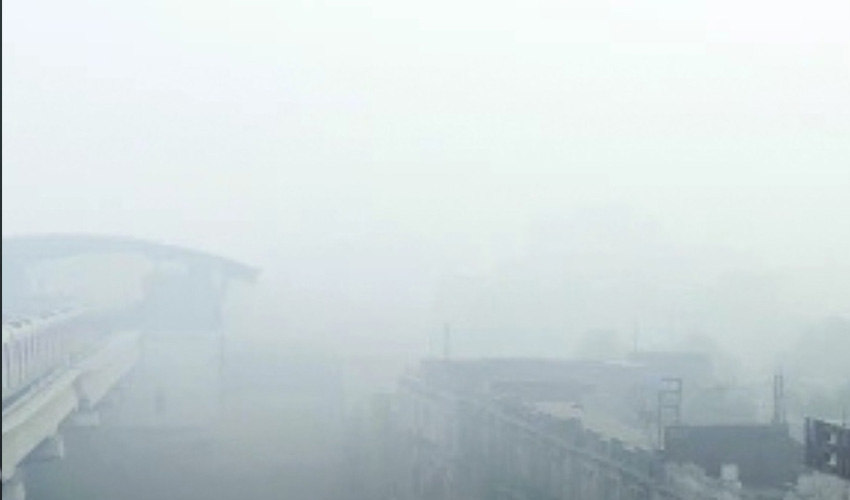The Punjab government has enacted additional preemptive measures to control pollution and protect public health across its major cities, including Lahore, Multan and Faisalabad in response to worsening air quality and the rising number of health concerns linked to smog.
The Punjab Environmental Protection Agency (EPA), in collaboration with other relevant departments, is taking swift action to address the alarming situation.
– Rising Smog Levels Prompt Health Emergency –
The air quality index (AQI) in several districts has breached critical thresholds, surpassing 500—well beyond the hazardous level for human health. In Lahore, Faisalabad, Multan, and Gujranwala, residents are reporting increased cases of respiratory illnesses, allergies, and eye irritations due to the high concentration of particulate matter and pollutants in the air. The situation has reached a level of public health concern, with notable spikes in conjunctivitis (pink eye) and respiratory diseases attributed to the combination of smoke, dust, and chemical exposure.
– Provincial Committee Responds to Smog Crisis –
In light of the escalating health threats, the Punjab government activated its Health Advisory System for Critical Air Pollution Events (HAS-CAPEs), which was established to monitor and respond to severe air quality emergencies. During a meeting of the Provincial CAPEs Committee (PCC) on October 21, 2024, the event was officially declared critical, triggering immediate action to protect citizens from the harmful effects of smog.
– Health Measures and Restrictions Implemented –
To mitigate the public health risks, the provincial authorities have declared a health emergency in Lahore and Multan, with immediate actions taken across several sectors:
1. Healthcare Services: All health-related leaves have been canceled for staff, and emergency departments will operate extended hours until 8:00 PM. Special counters will be set up in both public and private hospitals to treat smog-related illnesses. The provincial Rescue 1122 service will prioritize calls related to respiratory emergencies and smog-induced health issues.
2. School and University Closures: All colleges and universities in Lahore and Multan are mandated to shift to online modes of instruction, and a previous order closing schools has been extended until November 24, 2024. This closure aims to minimize exposure to the hazardous air quality, particularly for vulnerable student populations.
3. Construction and Vehicular Restrictions: As part of an effort to reduce pollution sources, the government has imposed a complete ban on construction activities in Lahore and Multan, with exemptions for national projects. In addition, heavy transport vehicles (HTVs) will be restricted from entering these districts, except for those carrying essential goods, such as fuel, medical supplies, and emergency services.
4. Public Movement and Dining Restrictions: The government has also imposed restrictions on dining services, prohibiting dine-in and eatery services after 4:00 PM, with takeaway services ending by 8:00 PM. This is intended to limit vehicular movement and the associated emissions during peak smog hours.
Read Also: School holidays extended, Punjab to go for full lockdown
5. Long-Term Solutions and Continuous Monitoring
As the smog situation is expected to persist for several weeks, primarily due to weather patterns that trap pollutants near the surface, the government is urging citizens to minimize outdoor activities, reduce private car usage, and comply with traffic and construction regulations. Local authorities are continuously monitoring air quality and will adjust restrictions accordingly.
6. Legal Consequences for Non-Compliance
The government has stressed that violations of these directives will result in penalties under Section 188 of the Pakistan Penal Code (PPC), highlighting the seriousness of the situation and the need for public cooperation.
The provincial administration, led by Dr Imran Hamid Sheikh, Director General of EPA Punjab, continues to emphasize the importance of community participation and adherence to these emergency measures in order to safeguard public health and reduce the long-term environmental impact of air pollution.
Furthmore, the government has expressed its resolve to remain committed to ongoing monitoring and swift intervention, recognising the critical need to strike a balance between environmental protection and the well-being of its citizens.



























